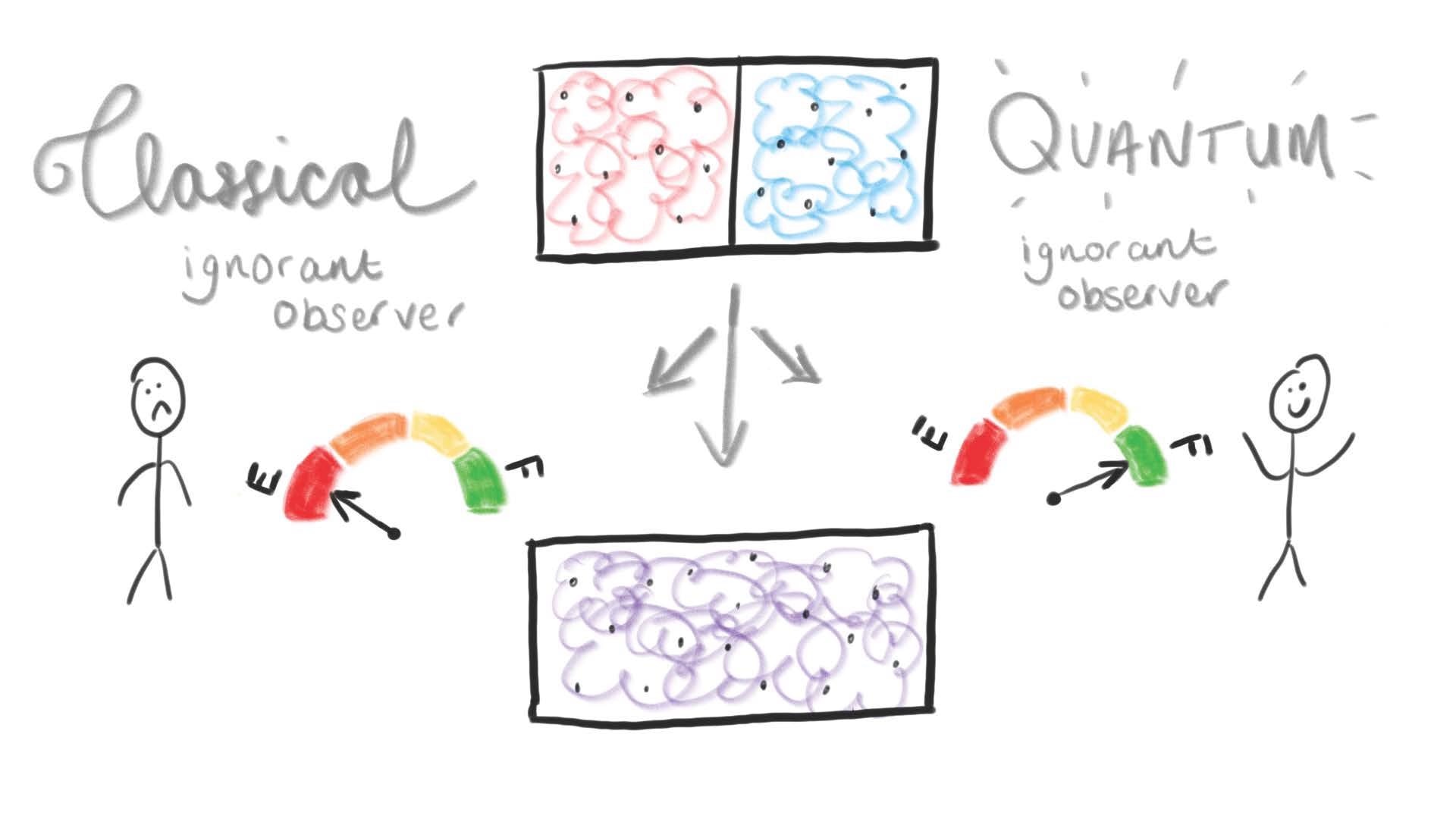Mar 8 2021
A new quantum version of a thermodynamical thought experiment devised 150 years ago could open the door for the advent of quantum heat engines.
 Quantum Gas experiment theory by Beth Morris, PhD in Mathematics. Image Credit: University of Nottingham.
Quantum Gas experiment theory by Beth Morris, PhD in Mathematics. Image Credit: University of Nottingham.
At the University of Nottingham, a group of mathematicians applied new quantum theory to the Gibbs paradox and showed a basic difference in the roles of information and control between quantum and classical thermodynamics. The study was published recently in the Nature Communications journal.
The classical Gibbs paradox offered key knowledge for the development of early thermodynamics and reiterates the need to take an experimenter’s degree of control over a system into account.
The researchers created a theory based on combining two quantum gases—for instance, one blue and one red, otherwise identical—which start isolated and then combine with each other in a box.
On the whole, the system turns more even, which is measured by an increase in entropy. Then, if the observer wears purple-tinted glasses and repeats the process; the gases appear the same, so it seems as if there is no change. In this case, the change in entropy is zero.
Benjamin Yadin and Benjamin Morris, the lead authors of the study, noted: “Our findings seem odd because we expect physical quantities such as entropy to have meaning independent of who calculates them.”
In order to resolve the paradox, we must realise that thermodynamics tells us what useful things can be done by an experimenter who has devices with specific capabilities. For example, a heated expanding gas can be used to drive an engine. In order to extract work (useful energy) from the mixing process, you need a device that can ‘see’ the difference between red and blue gases.
Benjamin Yadin and Benjamin Morris, Study Lead Authors, University of Nottingham
In classical terms, an 'ignorant' experimenter, who observes the gases as indistinguishable, cannot derive work from the process of combining.
The study demonstrates that in the quantum realm, even if it is impossible to differentiate between the gases, the ignorant experimenter can still derive work by combining them.
If the system is considered to expand and turn very large, where quantum properties would usually vanish, the team discovered that the quantum ignorant observer can derive as much work as if they had been able to differentiate between the gases.
When these gases are controlled by using a large quantum device, they would behave completely different from a classical macroscopic heat engine. This phenomenon is caused by the occurrence of special superposition states encoding more information compared to what is available classically.
Despite a century of research, there are so many aspects we don’t know or we don’t understand yet at the heart of quantum mechanics. Such a fundamental ignorance, however, doesn’t prevent us from putting quantum features to good use, as our work reveals.
Gerardo Adesso, Professor, University of Nottingham
“We hope our theoretical study can inspire exciting developments in the burgeoning field of quantum thermodynamics and catalyse further progress in the ongoing race for quantum-enhanced technologies,” Prof. Adesso added.
“Quantum heat engines are microscopic versions of our everyday heaters and refrigerators, which may be realised with just one or a few atoms (as already experimentally verified) and whose performance can be boosted by genuine quantum effects such as superposition and entanglement,” noted Prof. Adesso.
Presently, to see our quantum Gibbs paradox played out in a laboratory would require exquisite control over the system parameters, something which may be possible in fine-tuned ‘optical lattice’ systems or Bose-Einstein condensates—we are currently at work to design such proposals in collaboration with experimental groups.
Gerardo Adesso, Professor, University of Nottingham
Journal Reference:
Yadin, B., et al. (2021) Mixing indistinguishable systems leads to a quantum Gibbs paradox. Nature Communications. doi.org/10.1038/s41467-021-21620-7.